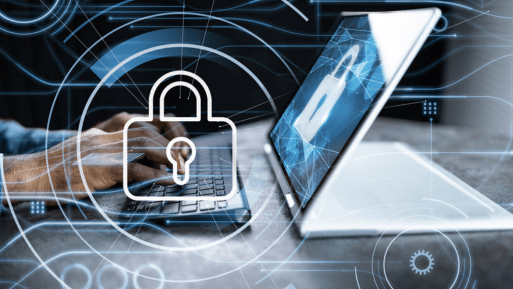Cybersecurity is vital in today’s fast-paced digital world, where keeping your private information safe is as crucial as the technology itself. Proxies are key players in this arena, not just for the tech-savvy but for everyone online. They work quietly behind the scenes, rerouting your internet traffic to keep your activities private, speed up your browsing, and even unlock content that’s out of reach due to geographic restrictions.
Understanding how proxies work isn’t just for IT professionals—it’s knowledge that’s integral to everyday online interactions. This defense layer is indispensable in a world where digital footprints are closely scrutinized and exploited. Dive into the mechanisms of proxies to fully understand how they strengthen cybersecurity defenses.
Understanding Proxies And Their Types
When you use a proxy server, your internet request first travels to the proxy before reaching its intended destination. This process not only hides your real IP address but also enables filtering, monitoring, and logging of internet traffic, adding a robust layer of security and anonymity to your online endeavors. Various types of proxies exist, such as HTTP, HTTPS, SOCKS, and transparent proxies, each designed for specific purposes and offering different security levels.
When aiming to enhance online security, knowing where to find reliable proxy services is crucial. Platforms like Proxy.Coupons offer a gateway to discover deals on proxy services, facilitating a cost-effective approach to bolster your cybersecurity. Distinguishing between free and paid proxies is essential, as paid proxies often provide more substantial security features and reliability.
The application of proxies goes beyond anonymity; it encompasses control. Businesses deploy proxy servers to monitor and regulate their employees’ internet usage, ensuring data security and blocking access to harmful sites. This level of control is equally vital for parents keen on protecting their children online, showcasing the versatility of proxies in the cybersecurity toolkit.

The Role Of Proxies In Cybersecurity
The primary role of a proxy server in cybersecurity is to act as a barrier between you and the websites you visit. This intermediary position prevents direct attacks against your network by blocking malicious traffic and unauthorized access attempts. Moreover, proxies can encrypt your data, adding an extra layer of security that shields sensitive information from hackers and eavesdroppers.
Beyond their defensive capabilities, proxies are instrumental in detecting and preventing malware infections. By examining incoming web traffic, they can filter out malicious content before it reaches your device, a crucial step in maintaining system integrity and protecting digital assets against cyber threats.
Proxies also assist in complying with data protection regulations by anonymizing data and managing access to geolocation-specific content. This is particularly vital for businesses handling sensitive customer information, necessitating strict privacy law adherence and further emphasizing the multifaceted role of proxies in cybersecurity.
Enhancing Performance With Proxies
The performance benefits of proxies, although often understated, are significant. By caching frequently accessed web pages, proxy servers can reduce bandwidth usage and speed up loading times. This efficiency is especially beneficial for organizations experiencing high internet traffic, as it improves data retrieval speed and minimizes network congestion.
Proxies help balance traffic across multiple servers, boosting website performance and reliability. Load balancing ensures no single server gets overwhelmed, reducing downtime and enhancing the user experience—an essential aspect for businesses dependent on online services and applications.
Lastly, proxies enable more efficient geographic content distribution. Strategically placed proxy servers ensure faster content delivery to users worldwide, reducing latency and optimizing browsing experiences for international audiences.
Privacy And Access With Proxies
Among the most valued benefits of proxies is their ability to ensure privacy and offer unrestricted access to information. By anonymizing your IP address and encrypting your data, proxies protect your online identity and personal details from surveillance and cybercriminals—a necessity in today’s environment of pervasive online tracking and data breaches.
Proxies also provide a pathway to unrestricted internet access, whether for bypassing government censorship, accessing geo-blocked content, or circumventing corporate firewalls. This capability empowers you to freely access information from anywhere, encouraging thoughtful consideration of the ethical implications of using proxies to bypass restrictions.
Security Challenges And Best Practices
Despite their strengths, proxies face security challenges. Misconfigured proxy servers can create vulnerabilities, and using untrustworthy proxy services may lead to data interception. To mitigate these risks, it’s vital to adhere to best practices, like choosing reputable proxy providers, regularly updating proxy server software, and implementing robust authentication methods.
Integrating proxies with other cybersecurity measures, such as firewalls and antivirus software, forms a comprehensive defense strategy. Encrypting traffic between the client and the proxy server, especially over public Wi-Fi, ensures that intercepted data remains secure from eavesdroppers, maximizing the security benefits of proxies.
The Bottom Line
Proxies are a fundamental component of cybersecurity, offering more than just a defensive barrier. They enhance performance, ensure privacy, and enable access to information, playing a vital role in the digital landscape.
However, their effectiveness depends on responsible use and adherence to best practices, highlighting the importance of education and vigilance in the digital age. As the complexity of online security continues to evolve, proxies remain an indispensable ally in the quest for a safer, more secure internet.

